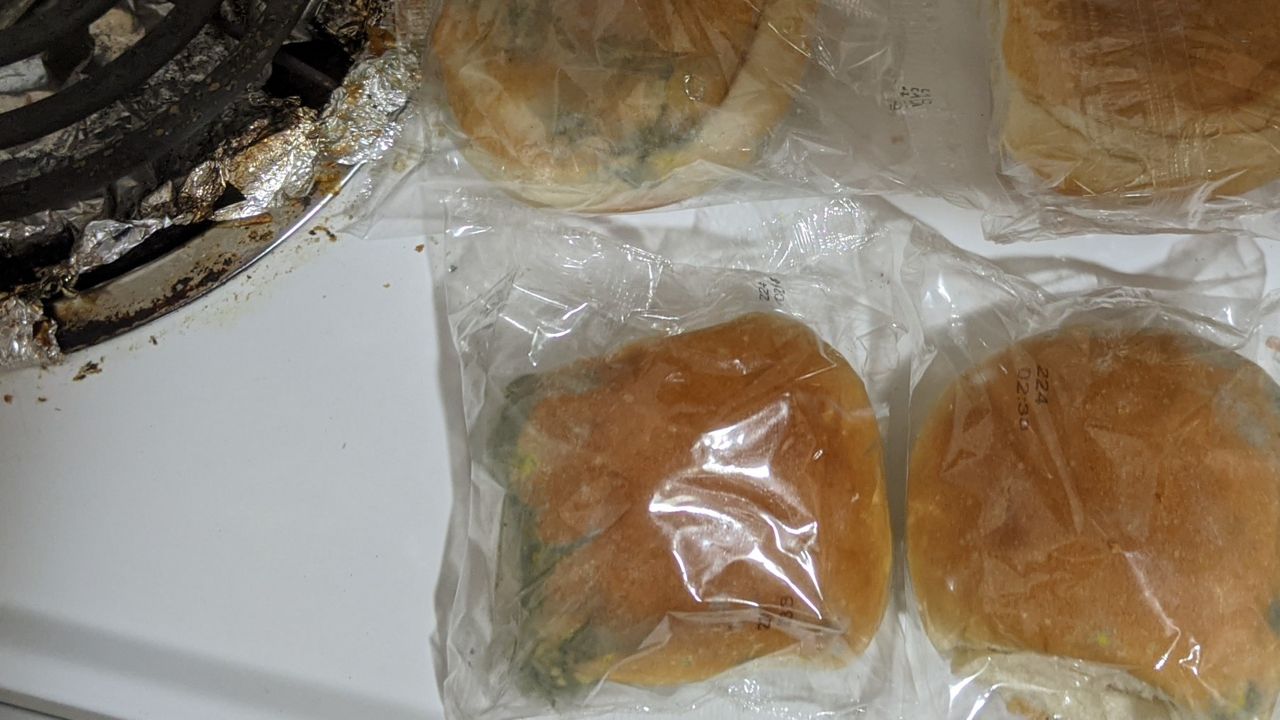Khalil Howard didn’t complain when his GetFoodNYC packages disappeared, or when the city sent countless cans of tuna fish and piles of ham sandwiches his doctor warned him against eating because of allergies and his diabetes.
But last week he opened his package and found bread covered in mold.
“Yes, I was frustrated,” Howard said. “But beggars can’t be choosers.”
Howard, 44, is not a beggar.
Howard is among roughly 715,000 New York City residents who state data show lost a job during the economic shutdown spurred by the novel coronavirus shutdown.
“I wanted to work, but I just couldn’t,” said Howard. “I was told not to.”
Howard is among more than 230,000 New Yorkers the city estimates contracted the virus.
“I lost taste and smell,” Howard said. “The congestion, it felt like my head was going to explode.”
Howard is among 2.1 million people Mayor Bill de Blasio estimates will become food insecure this year.
“I needed help with getting food,” Howard said. “The finances were really bad.”
And Howard is among a group of GetFoodNYC recipients who say they’ve received food it would be impossible to eat.
The $387 million program, run by Department of Sanitation head Kathryn Garcia, has only received a dozen food quality complaints during the five-month period in which it delivered 130 million meals, spokesperson Joshua Goodman said.
“We take concerns about moldy or otherwise inappropriate food extremely seriously, and have fired vendors for failing to provide the quality of food we require,” Goodman told NY1.
But Howard says he’s sent GetFoodNY at least a half dozen emails, only to get a form letter in reply. Other New Yorkers have taken to social media to complain of unlabeled meals, rotten food, and ingredients prohibited by their faith.
Astoria Fridge — a Queens volunteer organization that provides free food to its neighbors — raised concerns about packages of food without labels or expiration dates.
“This program prepares over 800,00 meals a day, but a lot of it goes to waste because they’re mystery meals,” the group wrote on Instagram.
“Unfortunately this is inaccessible to people with dietary restrictions or allergies, or who just don’t like to eat random meals without knowing what’s inside.”
Among those with dietary restrictions is two-year-old Daniel Kinkele, who suffers from Celiac Disease, according to his mom Bernadette.
Gluten makes Daniel's stomach extend to the point where he has trouble walking and causes diarrhea so bad he can go through seven diapers in an hour.
So when boxes of pasta and tuna casserole appear on Kinkele’s front step, she often finds there is nothing Daniel can eat.
Kinkele was forced to go on food stamps to pay for the expensive gluten-free food she must order especially for her toddler.
“They said, ‘We're going to take care of everyone,’” Kinkele said. “But there’s nothing for people like him.”
GetFoodNYC — which currently delivers roughly 5 million meals a week through about 50 contracted vendors — does not allow recipients to submit dietary restrictions because it cannot handle the projected influx of personalized requests, Goodman said.
Instead, those who report dietary issues are told, "New Yorkers with chronic illness and older adults need routine care. Make and keep your appointments for routine care."
This means Howard often ended up giving away piles of ham sandwiches and cans of tuna fish to neighbors of his East Harlem home.
But his neighbors won’t be receiving those spare gifts from Howard any longer, because he is proud to say he no longer relies on GetFoodNYC.
“I shouldn’t worry about pride, but it hurts that I have to,” Howard said. “I’m also grateful that the program is there to help me. I’m one of the lucky ones."
